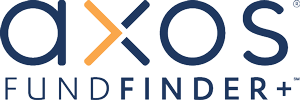- Home»
- Mutual Funds»
- Funds by Asset Manager»
- Franklin Templeton Investments»
- Western Asset Ultra-Short Income Fund ARMZX
Axos Financial, Inc., All Rights Reserved. © 2024 Axos Bank, All Rights Reserved. © 2024 Axos Invest LLC. Member FINRA & SIPC. All Rights Reserved. © 2024 Axos Invest, Inc. All Rights Reserved.
**”Gross Expense Ratio” reflects a fund’s total annual operating expenses as stated in the fund’s prospectus and does not reflect any expense reimbursements or waivers that may exist. This mutual fund may be subject to expense reimbursements and waivers, and less such reimbursements and waivers may have lower total annual operating expenses (i.e., “Net Expense Ratio”) than indicated herein. Please read the fund prospectus carefully to determine the existence of any expense reimbursements or waivers and details on their limits and termination dates.
Before you invest in an ETF or send money, you should read the prospectus of the ETF carefully and consider the investment objectives, risks, charges, and expenses for the ETF. You can receive a prospectus for each ETF by sending a secure message on our online platform.
Particular ETFs may not be appropriate investments for all investors, and there may be other ETFs or investment options available through Axos Invest LLC that are more suitable.
A mutual fund is not FDIC-insured, may lose value, and is not guaranteed by a bank or other financial institution.
Performance quoted represents past performance, is no guarantee of future results, and may not provide an adequate basis for evaluating the performance of the product over varying market conditions or economic cycles. Current performance may be lower or higher than the performance data quoted. The investment return and principal value of an investment will fluctuate so that an investor’s shares, when redeemed, may be worth more or less than their original cost.
No-transaction-fee funds and other funds offered through Axos Invest have other fees and expenses that apply to a continued investment in the fund and are described in the prospectus.
Mutual funds, closed-end funds and exchange-traded funds are subject to market, exchange rate, political, credit, interest rate, and prepayment risks, which vary depending on the type of fund. International investments involve special risks, including currency fluctuations and political and economic instability. Asset allocation and diversification do not eliminate the risk of experiencing investment losses. Fund purchases may be subject to investment minimums, eligibility and other restrictions, as well as charges and expenses.
Research and planning tools are obtained by unaffiliated third-party sources deemed reliable by Axos Invest. However, Axos Invest does not guarantee their accuracy and completeness and makes no warranties with respect to results to be obtained from their use. The reports are for informational purposes only.
ETFs are subject to risk similar to those of their underlying securities, including, but not limited to, market, investment, sector, or industry risks, and those regarding short-selling and margin account maintenance. Some ETFs may involve international risk, currency risk, commodity risk, leverage risk, credit risk, and interest rate risk. Performance may be affected by risks associated with non-diversification, including investments in specific countries or sectors.
Additional risks may also include, but are not limited to, investments in foreign securities, especially emerging markets, real estate investment trusts (REITs), fixed income, small-capitalization securities, and commodities. Each individual investor should consider these risks carefully before investing in a particular security or strategy. Investment returns will fluctuate and are subject to market volatility, so that an investor’s shares, when redeemed or sold, may be worth more or less than their original cost. Unlike mutual funds, shares of ETFs are not individually redeemable directly with the ETF. Shares are bought and sold at market price, which may be higher or lower than the net asset value (NAV).
